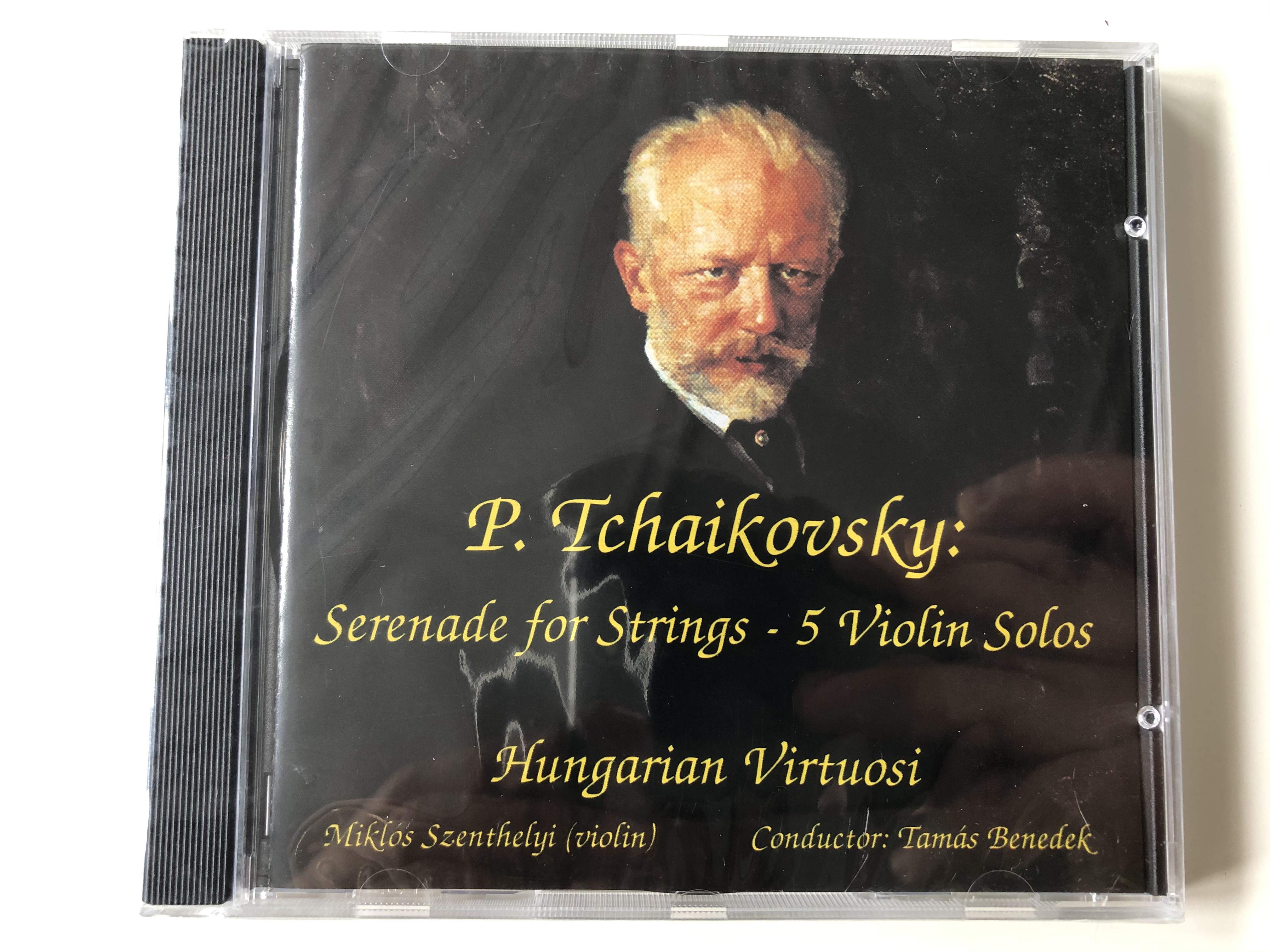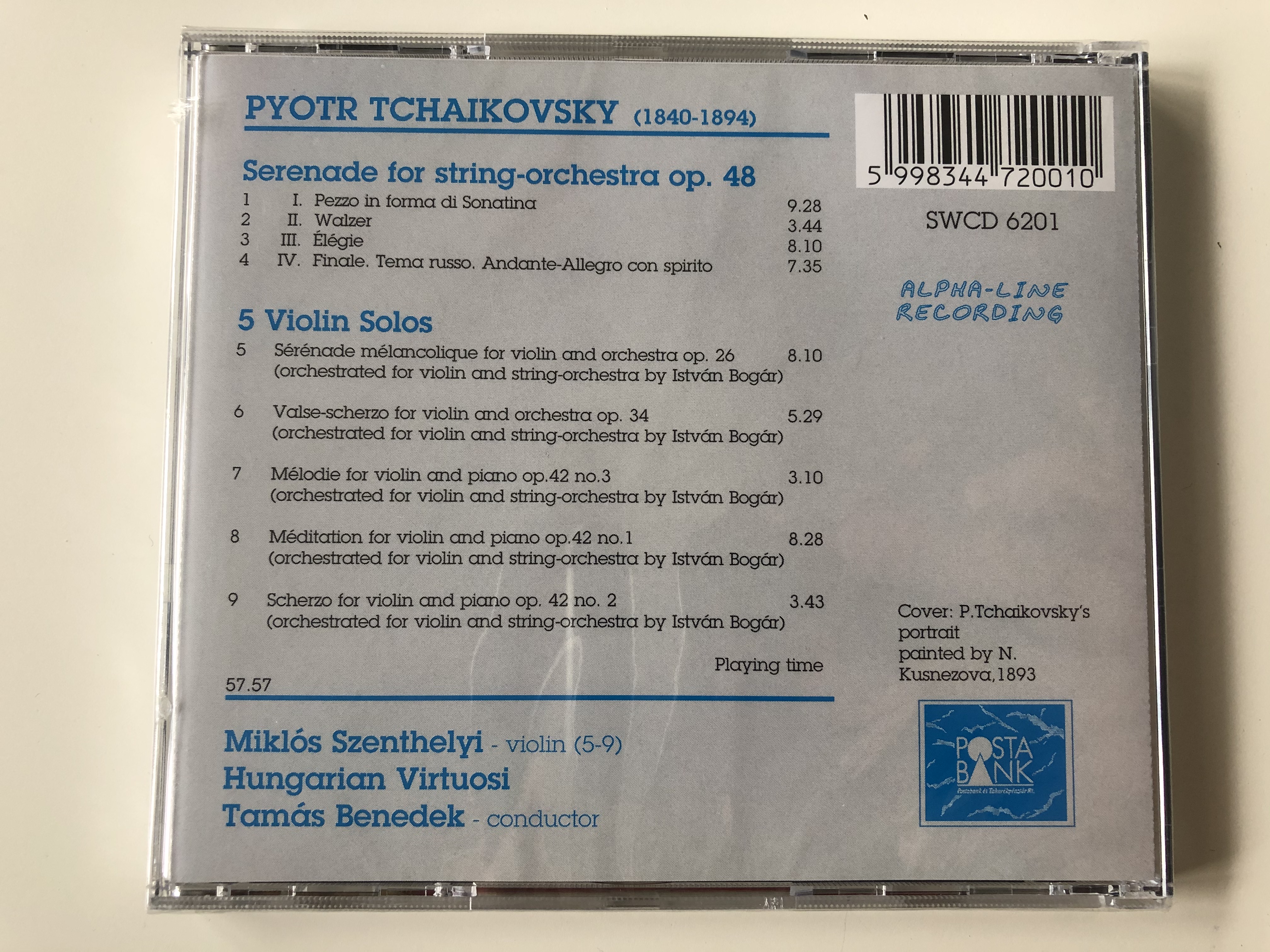Description
P. Tchaikovsky: Serenade for Strings - 5 Violin Solos / Hungarian Virtuosi - Miklos Szenthelyi (violin), Conductor: Tamas Benedek / Alpha-Line Recording Audio CD / SWCD6201
UPC 5998344720010
Product Details:
Tracklist:
Serenade for string-orchestra op. 48
1 I. Pezzo in forma di Sonatina 9.28
2 II. Walzer 3.44
3 III. Elégie ne 8.10
4 IV. Finale. Tema russo. Andante-Allegro con spirito 7.35
5 Violin Solos
5 Sérénade mélancolique for violin and orchestra op. 26 8.10
(orchestrated for violin and string-orchestra by Istvan Bogar)
6 Valse-scherzo for violin omd orchestra op. 34 5.29
(orchestrated for violin and string-orchestra by Istvon Bogar)
7 Mélodie for violin and piano op.42 no 3 3.10
(orchestrated for violin cond string-orchestra by Istvén Bogar)
8 Méditation for violin and pianoop.42 no.1 8.28
(orchestrated for violin and string-orchestra by Istvom Bogar)
9 Scherzo for violin and piano op.42 no. 2 3.43
(orchestrated for violin and string-orchestra by Istvan Bogéy)
- Violin - Miklos Szenthelyi
- Conductor - Tamas Benedek
About the Composer:
Tchaikovsky was one of the earlier students of the St Petersburg Conservatory established by Anton Rubinstein, completing his studies there to become a member of the teaching staff at the similar institution established in Moscow by Anton Rubinstein’s brother, Nikolay. He was able to withdraw from teaching when a rich widow, Nadezhda von Meck, offered him financial support; this support continued for much of his life, although, according to the original conditions of the pension, they never met. Tchaikovsky was a man of neurotic diffidence, his self-doubt increased by his homosexuality. It has been suggested by some that an impending scandal caused him to take his own life at a time when he was at the height of his powers as a composer, although others have found this improbable. His music is thoroughly Russian in character, but, although he was influenced by Balakirev and the ideals of the Russian nationalist composers ‘The Five’, he may be seen as belonging rather to the more international school of composition fostered by the Conservatories that Balakirev, leader of ‘The Five’, so much deplored.

























